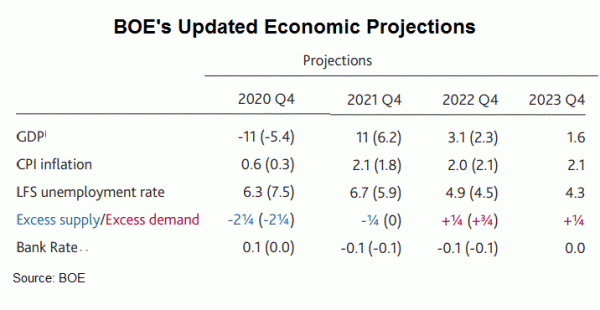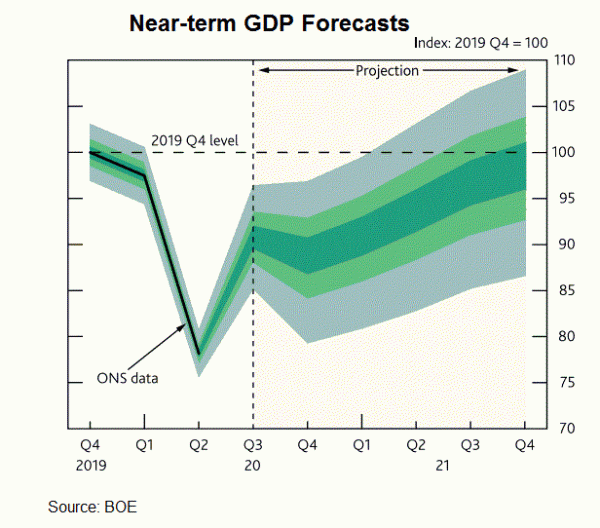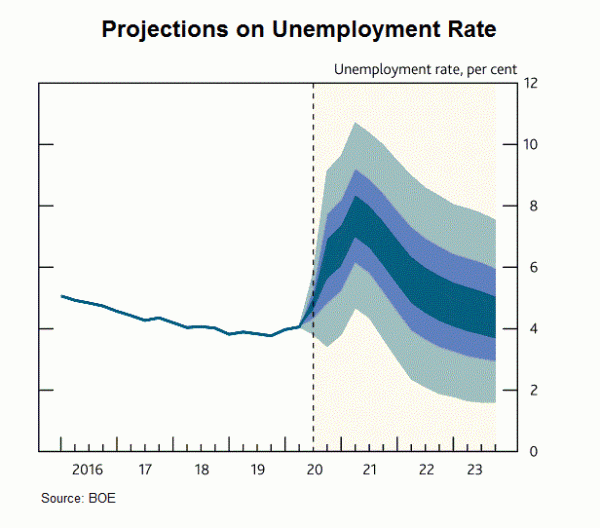While leaving the Bank rate unchanged at 0.1%, BOE raised the size of asset purchases (QE) by +135B pound to 875 pound. Both decisions were made unanimously. The expansion came in larger than we had anticipated. The staff also revised lower GDP growth outlook, now expecting the economy to return to pre-virus levels in early 2022. The central bank has, however, offered little hint about whether, and when, the policy rate will go to negative.
Downgrading Growth Outlook
BOE staff has downgraded the country’s economic outlook in its latest projections. Driven by the fresh lockdown measures, the staff now projects a double dip in domestic economy, expecting contraction in 4Q20. Expectations of a contraction in the quarter were driven by “lower consumer spending on social activities, which is assumed to be partially offset by higher spending on other goods and services”. This forecast was based on the assumption that the restrictions would “loosen somewhat” and would “remain in place until the end of 1Q21. Meanwhile, the central bank now expects that the UK economy will not return to its pre-pandemic size until 1Q22, later than August’s estimate of end 2021.


On the job market, BOE now projects that the unemployment rate will rise to 6.25% at the end of this year, lower than 7.5% projected in August. We believe that this is driven by the improvement in the recent as well as the extension of the #furlough scheme. However, the unemployment rate is expected to peak at 7.75% in 2Q21, highest since 2013. This is compared with a peak at 7.5% by end-2020 projected in August. As BOE explained, the unemployment rate is expected to increase because “GDP does not exceed its level in 4Q19 until 1Q22”.
Monetary Policy Stance
While BOE’s QE expansion came in bigger than expected, it has offered little hint about negative interest rates. This is probably due to the fact there is still about a week to go for commercial banks to respond to the central bank’s survey regarding the impacts of negative rates on their businesses. Concerning the monetary policy outlook, we believe further easing is still likely. The central bank sounds optimistic to assume that a free trade agreement would be reached between the UK and EU before the end of 2020. If no deal Brexit materializes by the end of the year, the negative impacts on economic recovery should be more pronounced that BOE’s latest projections. Since there still lacks consensus about the effectiveness of negative interest rate, we expect BOE to continue to rely on QE if more stimulus is needed in the near future.
